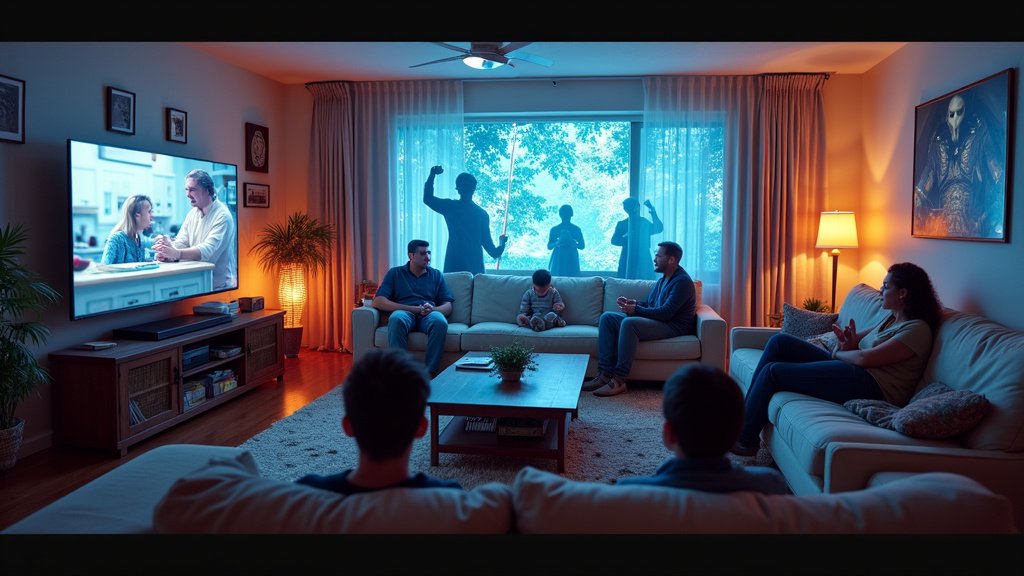In the grand tapestry of Westerosi lore, House of the Dragon stands as a monumental addition, chronicling the fiery ascent and turbulent reign of House Targaryen. This epic series transports viewers back to a time of dragons, political machinations, and epic battles, laying the groundwork for the world we came to know in Game of Thrones. House of the Dragon is not just a prequel; it is a saga of power, betrayal, and the relentless pursuit of destiny.
Exploring House of the Dragon
A Return to Westeros
House of the Dragon masterfully recreates the world of Westeros, infusing it with the rich history and mythology of the Targaryen dynasty. The series begins with the grandeur of Old Valyria’s last remnants and delves into the complexities of King Viserys I’s reign. The meticulous attention to detail in the sets, costumes, and world-building creates an immersive experience that captures the essence of George R.R. Martin’s universe.
The opening scenes are a visual feast, showcasing the splendor of the Red Keep and the imposing Dragonstone. The architectural marvels and lush landscapes contrast starkly with the dark undertones of the political plots brewing within. The return to familiar locales, now seen through the lens of Targaryen rule, evokes a sense of nostalgia while expanding on the rich lore of Westeros. The world feels both new and familiar, drawing viewers back into its intricate web of power and intrigue.
Power Struggles and Political Intrigue
At its core, House of the Dragon is a tale of power struggles. The series delves into the intricate politics of the Targaryen court, where alliances are fragile, and betrayal lurks at every corner. The narrative revolves around the question of succession, as King Viserys I grapples with naming an heir amidst growing dissent and ambition.
The tension is palpable as various factions vie for influence. The rivalry between Princess Rhaenyra, Viserys’ chosen heir, and her half-brother Aegon, symbolizes the broader conflict of tradition versus change. Their supporters, driven by personal ambition and loyalty, add layers to the political landscape. The series deftly navigates these dynamics, portraying the characters’ motivations and the consequences of their actions with a deft hand.
The political intrigue is not limited to the Targaryens alone. The great houses of Westeros—Stark, Lannister, Baratheon, and others—each have their own stakes in the succession, leading to a complex web of alliances and enmities. The machinations of these houses add depth to the narrative, making each episode a masterclass in political drama. The show’s portrayal of court politics, with its ever-shifting alliances and ruthless power plays, is both captivating and nerve-wracking.
Character Arcs of Ambition and Tragedy
The characters of House of the Dragon are richly developed, each driven by their own ambitions and desires. The series excels in portraying the personal struggles of its characters against the backdrop of political chaos. Their arcs are a blend of ambition, loyalty, and tragedy, reflecting the human cost of power.
Princess Rhaenyra is a standout character, embodying both strength and vulnerability. Her journey from a young princess to a contender for the Iron Throne is fraught with challenges, both external and internal. The weight of her father’s expectations and the pressure to prove herself in a male-dominated society add depth to her character. Her determination and resilience make her a compelling protagonist.
Opposing her is Aegon, whose claim to the throne is equally strong. His arc is one of transformation, as he evolves from a reluctant participant in the power struggle to a formidable rival. The series portrays his growth with nuance, highlighting his complexities and the influences that shape his destiny. The conflict between Rhaenyra and Aegon, driven by their contrasting visions for the realm, is a central theme that propels the narrative forward.
Other characters, such as the cunning Otto Hightower and the loyal Daemon Targaryen, add richness to the story. Otto’s machinations and Daemon’s unwavering loyalty to his house create a dynamic interplay of loyalty and deception. The interplay of these characters, with their conflicting ambitions and loyalties, forms the crux of the series’ dramatic tension. Their arcs, marked by moments of glory and downfall, capture the essence of epic storytelling.
Mythical Beasts and Epic Battles
No discussion of House of the Dragon would be complete without mentioning the dragons. These mythical beasts, central to Targaryen power, are brought to life with breathtaking CGI and practical effects. Each dragon is unique, reflecting the personality and bond with its rider. The aerial battles and dragon confrontations are visually spectacular, adding a layer of epic grandeur to the series.
The dragons are not merely tools of war but symbols of Targaryen legacy and power. Their presence on the battlefield tips the scales, making each confrontation a high-stakes affair. The show’s depiction of dragon lore and their pivotal role in the power dynamics of Westeros is both thrilling and awe-inspiring. The visual effects team has crafted sequences that are as beautiful as they are terrifying, capturing the majesty and ferocity of these creatures.
The battles themselves are grand spectacles, blending strategy with raw power. From skirmishes to large-scale wars, each conflict is meticulously choreographed, highlighting the brutality and chaos of medieval warfare. The stakes are always high, and the consequences of each battle reverberate through the narrative. These epic confrontations, where dragons and soldiers clash, are the heart-pounding highlights of the series.
Performance Highlights
The performances in House of the Dragon are nothing short of exceptional. The cast brings their characters to life with depth and intensity, making each figure memorable. Paddy Considine as King Viserys I captures the complexity of a ruler torn between duty and personal desire. Emma D’Arcy as Rhaenyra and Matt Smith as Daemon deliver powerful performances that anchor the series.
Considine’s portrayal of Viserys is both regal and relatable. He embodies the burden of kingship, struggling to maintain peace while dealing with personal and political challenges. D’Arcy’s Rhaenyra is a blend of grace and determination, capturing the nuances of a woman striving to assert her rightful place. Smith’s Daemon, with his unpredictable nature and fierce loyalty, adds a layer of intrigue and danger to the narrative.
The supporting cast also shines, with standout performances from Rhys Ifans as Otto Hightower and Olivia Cooke as Alicent Hightower. Ifans brings a calculating coldness to Otto, while Cooke’s Alicent is a study in contrast, torn between friendship and ambition. The ensemble cast, through their nuanced portrayals, elevate the series, making every character arc engaging and impactful.
Critical Reception
Critics have lauded House of the Dragon for its epic storytelling, complex characters, and visual splendor. The series has been praised for its ability to expand on the lore of Game of Thrones while creating a compelling narrative of its own. The intricate political plots, combined with the personal dramas of the characters, have been highlighted as the show’s strengths.
Reviewers have noted the show’s success in balancing spectacle with substance. The political intrigue, character development, and dramatic tension have been commended for their depth and complexity. The series’ ability to weave personal and political narratives seamlessly has been a major point of acclaim, drawing viewers into the world of Westeros with each episode.
However, some critics have pointed out the challenge of living up to the legacy of Game of Thrones. The weight of expectations has been immense, but House of the Dragon has largely succeeded in carving out its own identity. The show’s commitment to exploring new facets of the Targaryen saga while honoring the source material has been appreciated by both fans and critics alike.
Conclusion
House of the Dragon is a masterclass in epic storytelling, bringing the rich history of Westeros to life with grandeur and depth. Through its complex characters, political intrigue, and stunning visuals, the series offers a compelling narrative that stands on its own while enhancing the legacy of Game of Thrones. As the dragons soar and the power struggles intensify, House of the Dragon cements its place as a monumental achievement in television history.




